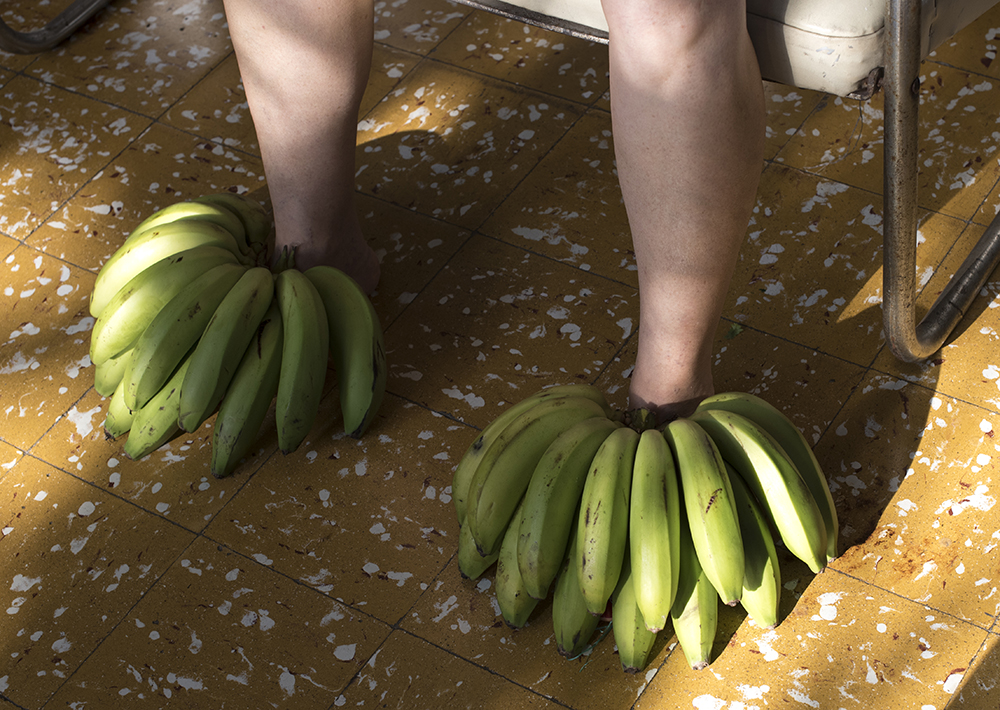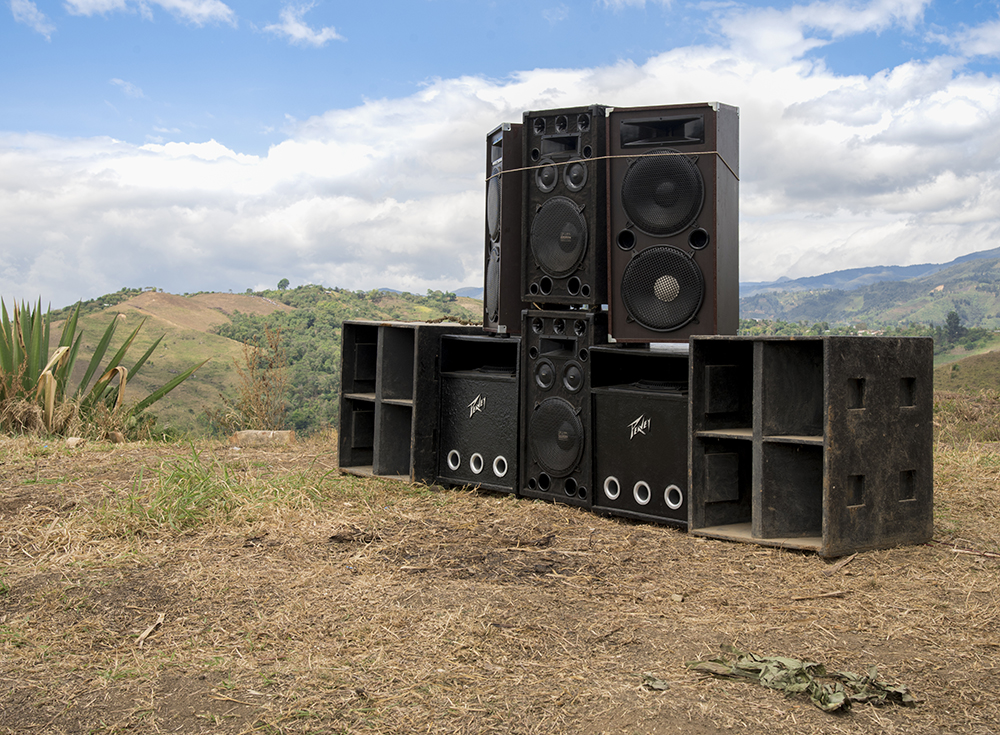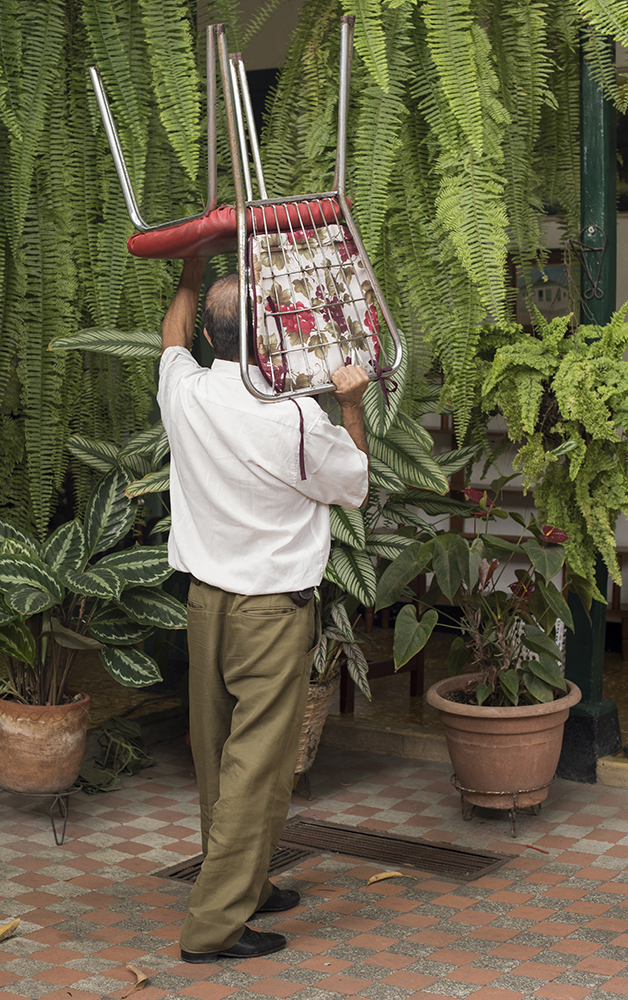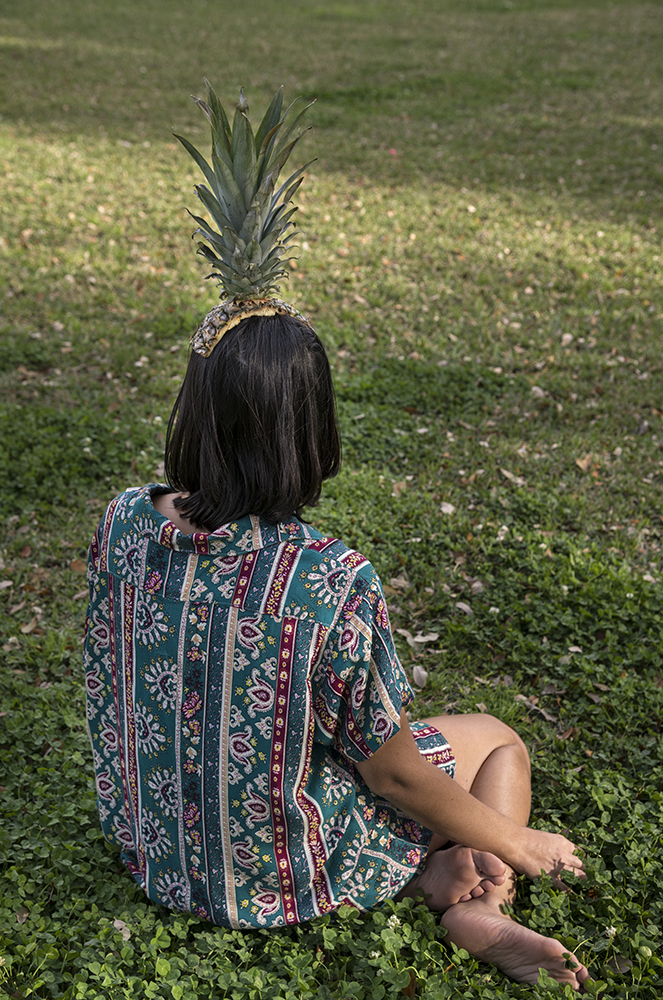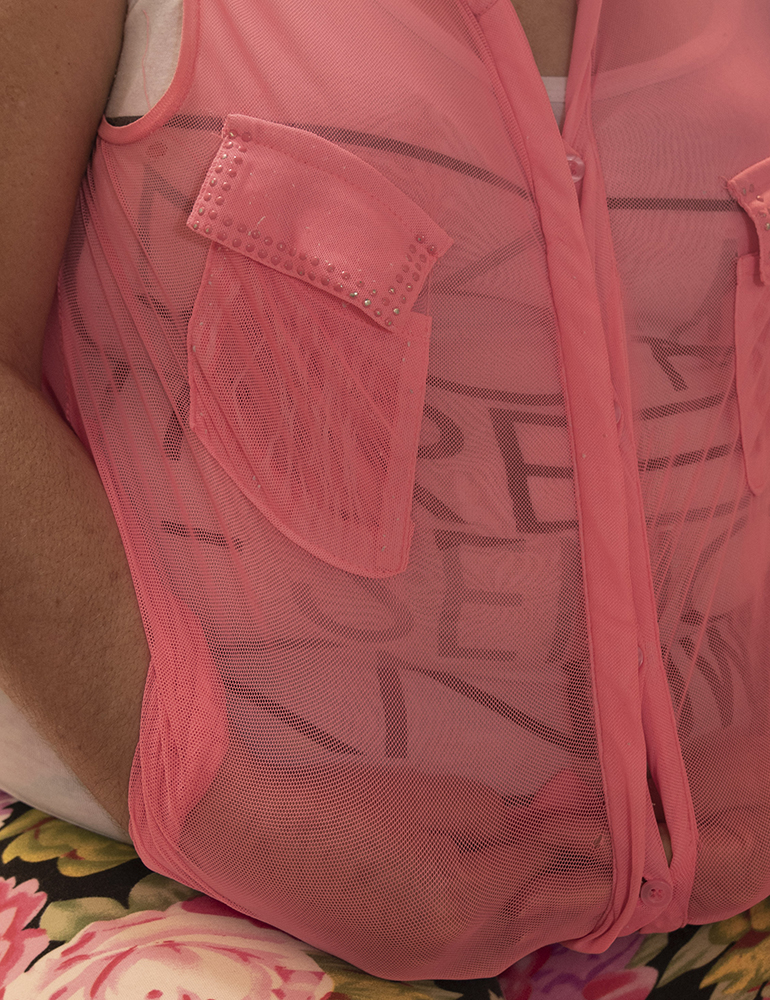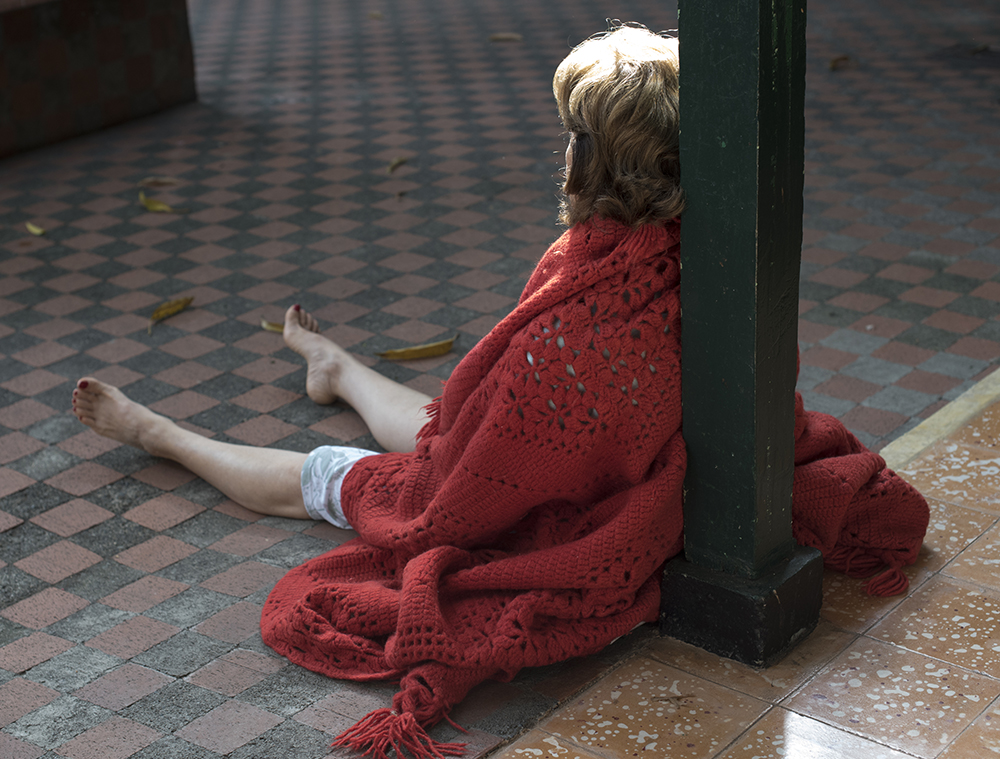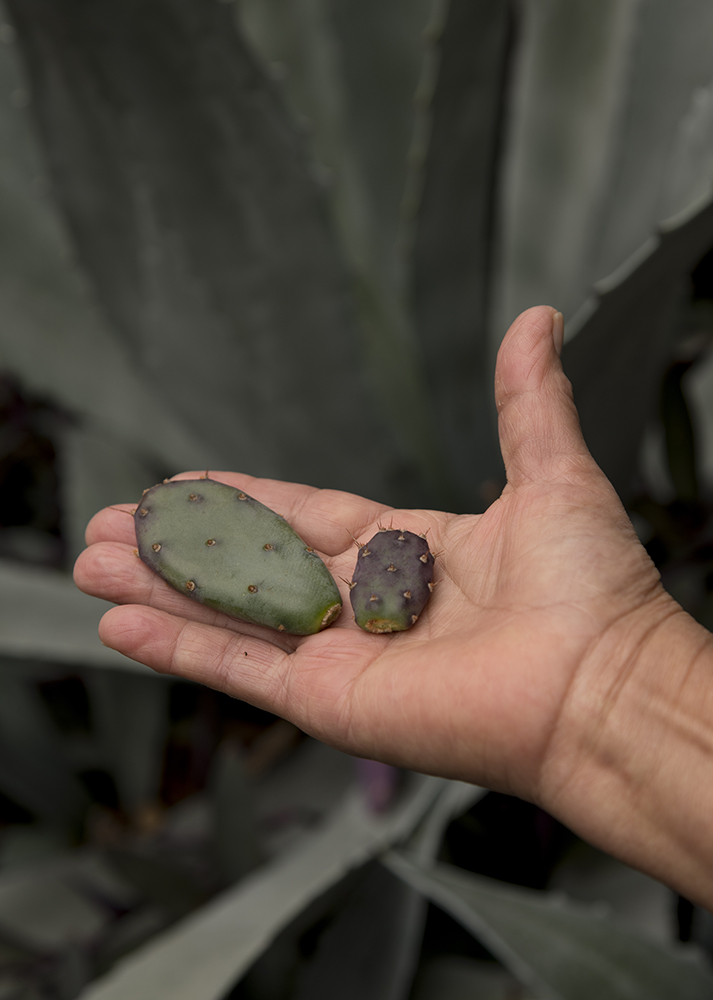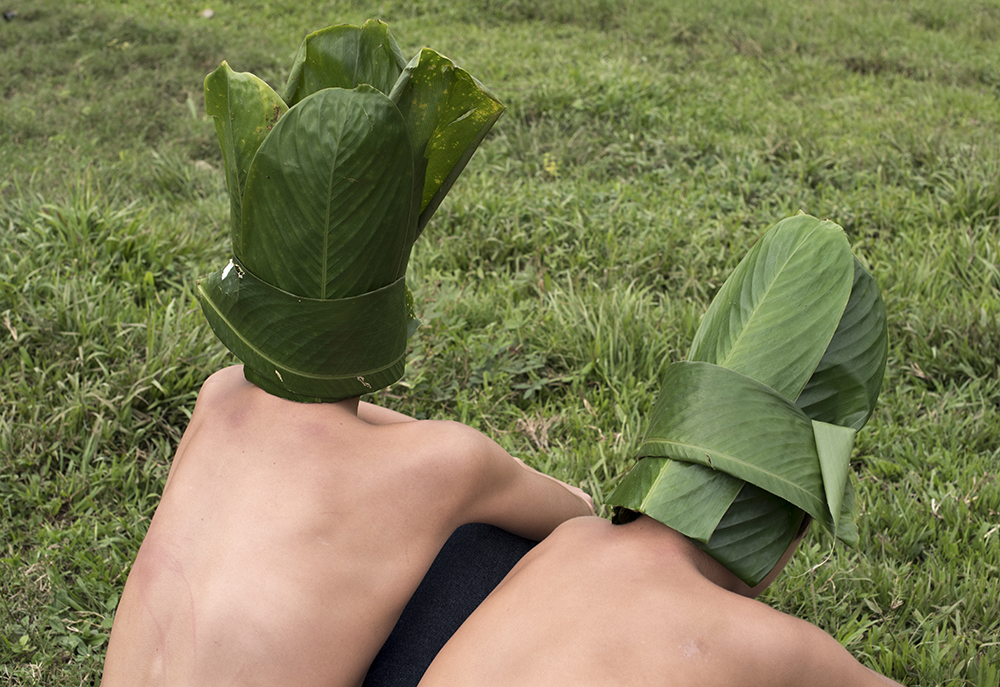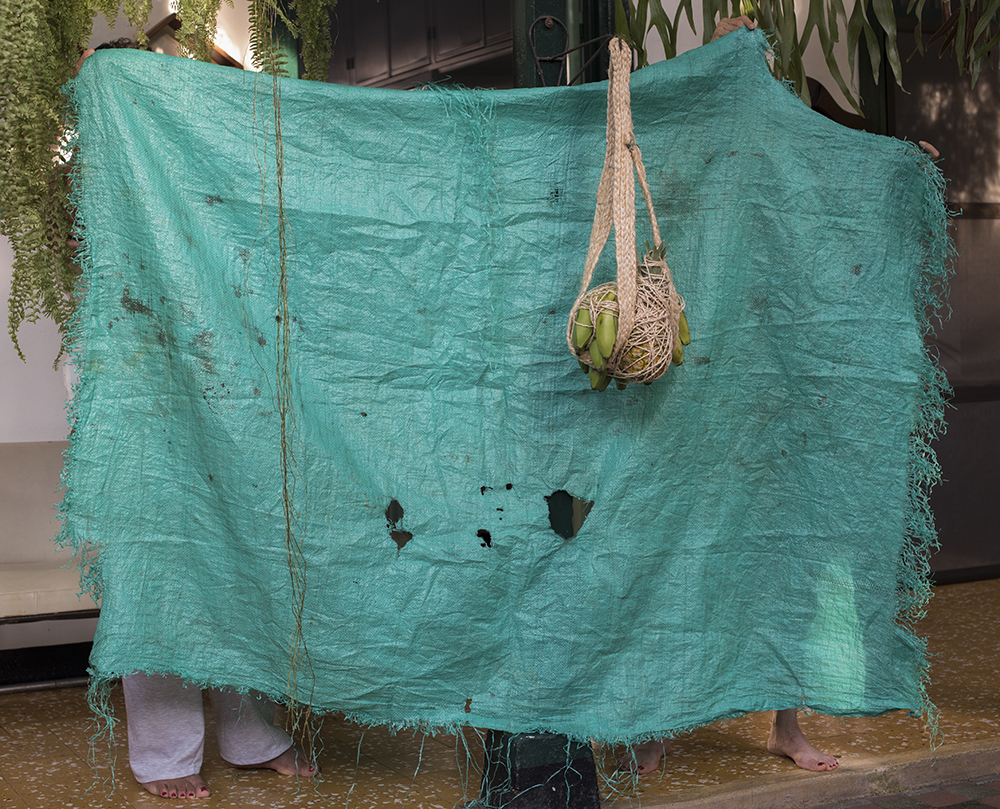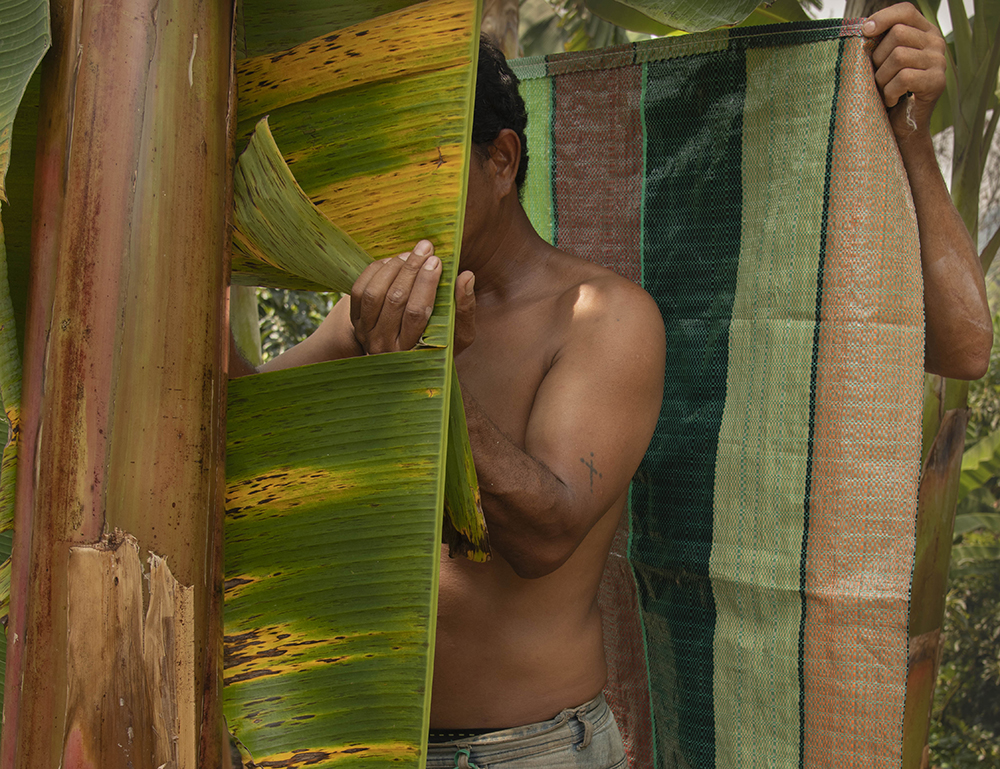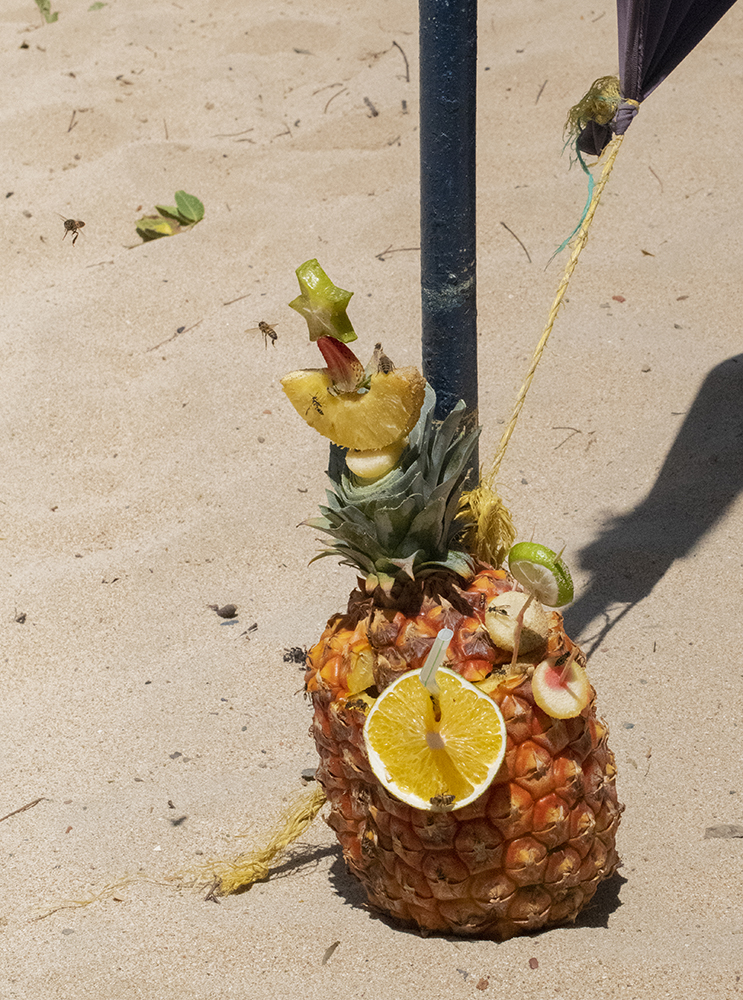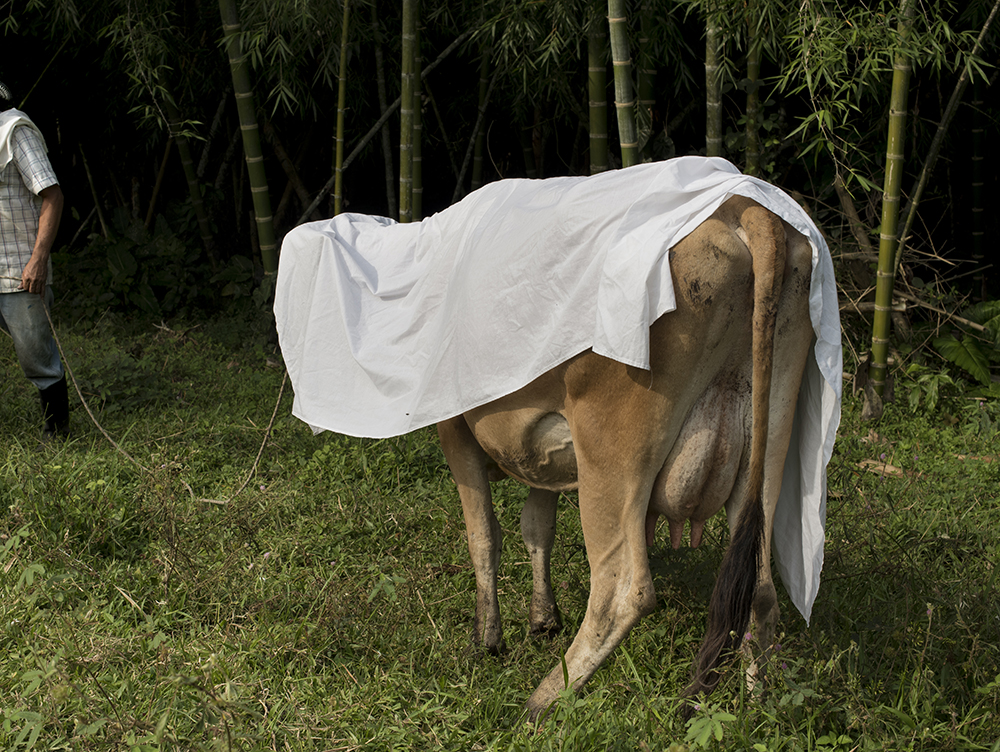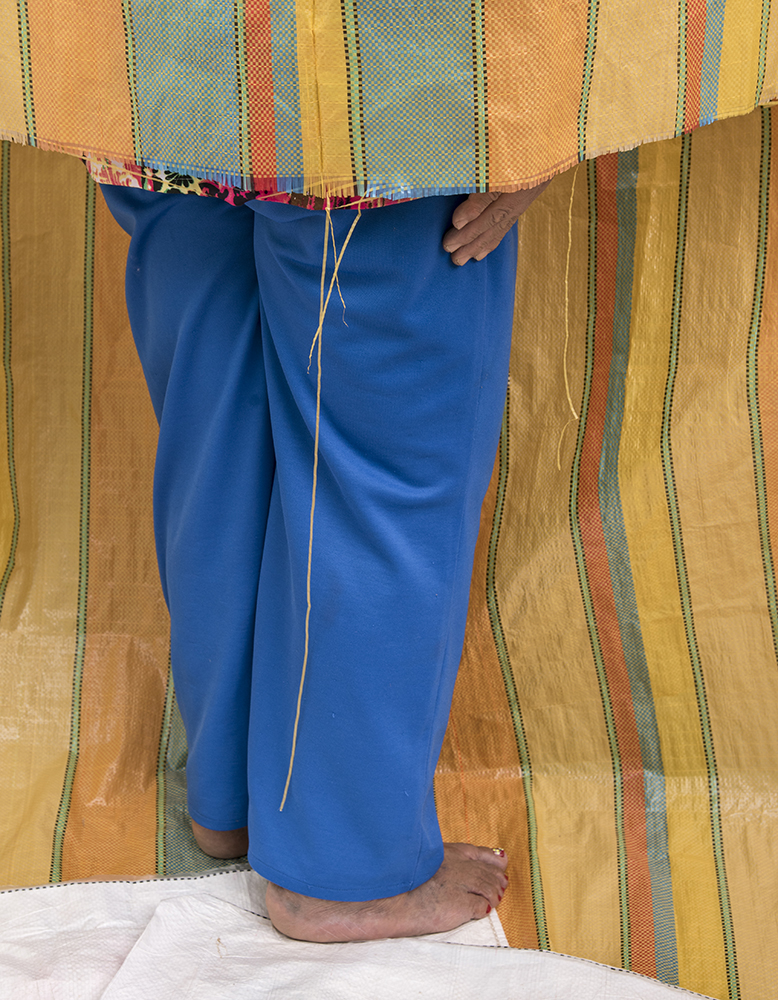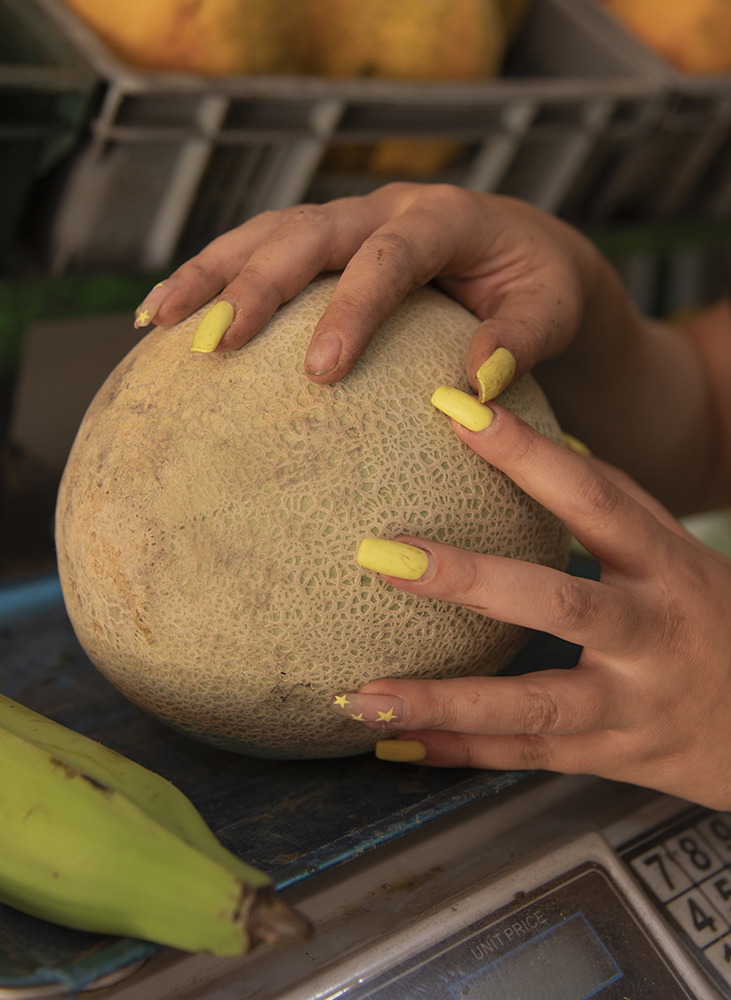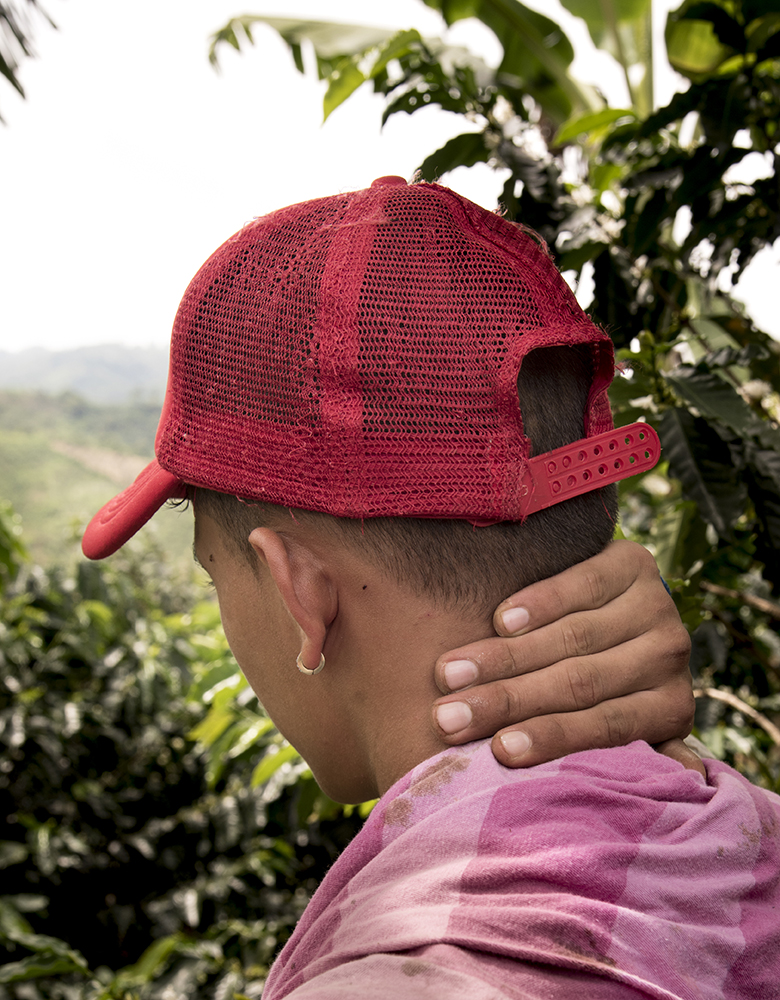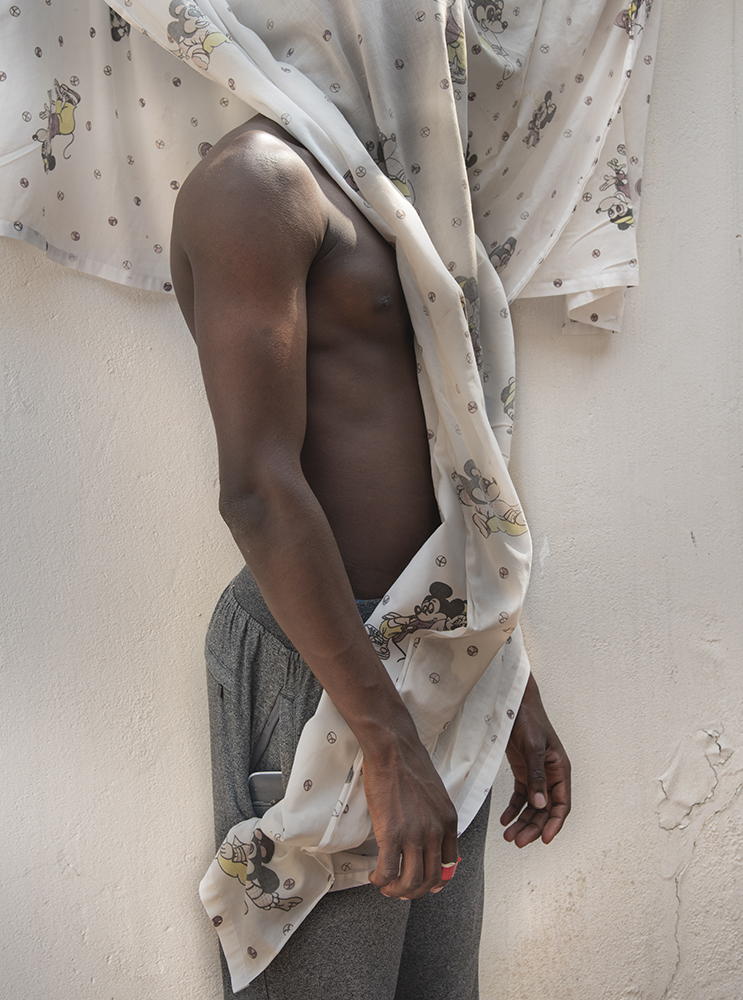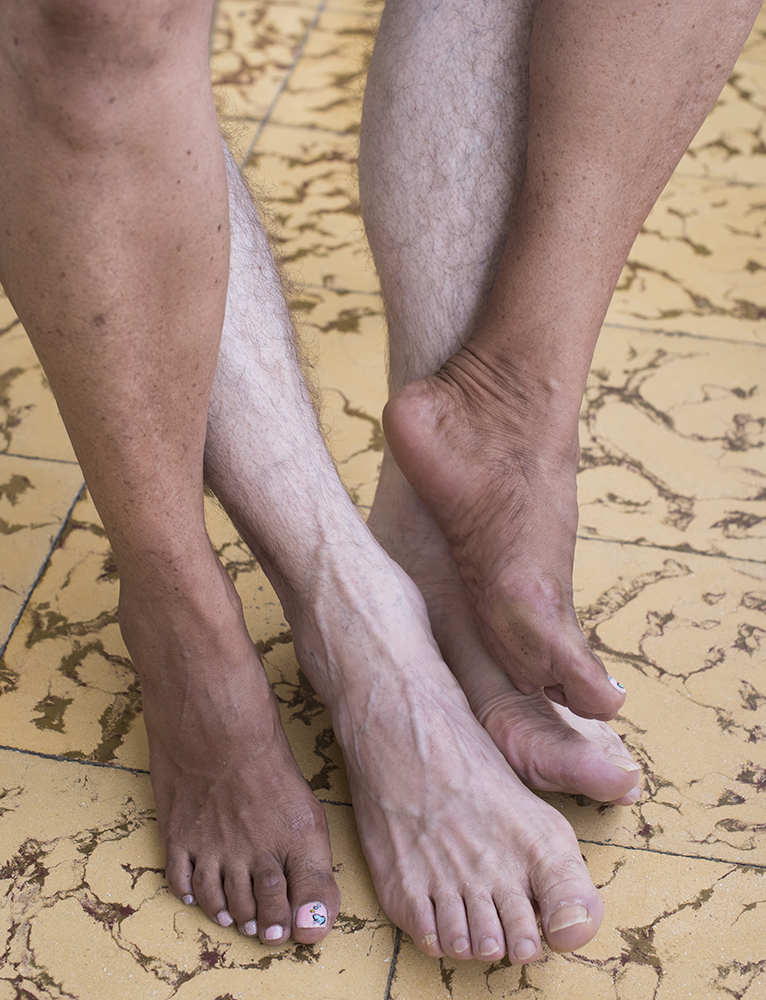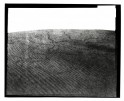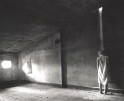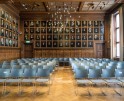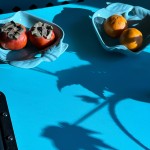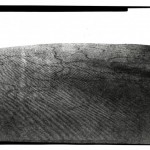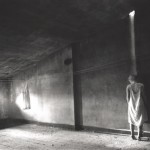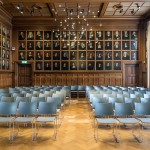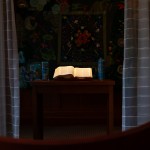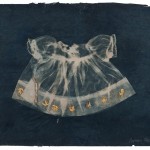Love’s Labors: Cristina Velásquez: The New World
Love’s Labors: Labor is often described as being of the body, and economists have spent centuries calculating formulas to explain its value. But there is a lacuna in all of these calculations, the invisible and the ephemeral—love. How do we calculate the value of love, and how did its meaning in popular culture become so romantic? This week’s artists reinforce labor’s physicality: at times they visualize acts of labor or a person who labors, and at times their pieces are a description of their own labor. Either way, they render the unseen—people, emotions, experiences, materials—visible. But through such work, they also assert that labor is not just a physical act: it’s spiritual, emotional, and intellectual, all of which can be mutually enriching. What does labor look like when it’s driven by love?
When I was young, I used to watch my mother’s hand preparing the bath, outstretched and elegant, moving back and forth until the hot and cold temperatures swirled into one body of warm water. Bathing can be a sacred act, performed in many ways and for many reasons: a personal cleansing, a religious or spiritual ritual, a sign of hospitality, an act of love. Through her careful gaze, Cristina Velásquez bathes her subjects with a deep attention that clarifies each shape, every gesture. She’s not washing away their transgressions, she’s washing away ours—reinforcing these sitters’ humanity while inviting viewers to reclaim their own. Many of those visualized in her work maintain anonymity, and this choice reflects the ways in which people who perform labor often become invisible in and to the public. As Cristina anoints them with such care, she is completely committed to the moment and whatever it evokes. Revealing moments of agency that many people rush past, she re-imagines an entire value system and by doing so, anoints the viewer as well.
Cristina Velásquez is an artist working primarily with photography and sculptural paper compositions. Her work examines postcolonial structures of power in Latin America, such as race, gender, class, and labor distribution. She is interested in the way one culture translates another, and how inevitably, a dominant culture sanitizes and reduces the other in a subtle, and not so subtle, continuity of colonialism. Cristina received an MFA degree in Advanced Photographic Studies from Bard College and the International Center of Photography (2017). Recent recognitions include Regeneration 4, Musée de l’Elysée, Lausanne (2020); the Light Work Artist-In- Residency program (2019); the Carol Crow Fellowship (2019); and the Kris Graves Project, Lost II Book Prize (2019). Cristina’s work has been shown widely including exhibitions at Musée de l’Elysée, ICP Museum, ArtBo, MoMA PS1, International Center of Photography, Houston Center for Photography, and Society for Photographic Education, in addition to being held in private and public collections. Her monographs Viterbo (Kris Graves Projects, 2019), and Montañera (self published, 2017) have been collected by Metropolitan Museum of Art, The Getty Institute, Whitney Museum, Guggenheim Museum, Amon Carter Museum of American Art, the International Center of Photography, Syracuse University, ArtCenter College of Art and Design, School of the Art Institute of Chicago, Arcadia University, Texas State University, University of Iowa, Ryerson University and George Washington University; amongst others. Cristina lives and works between Bogotá and New York. She is currently a curator for New Poetics of Labor, and a mentor at University of Houston. You can follow Christina on Instagram: @cristinavelasquezstudio
–Britt Salvesen, Curator and Head of the Wallis Annenberg Photography Department and the Prints and Drawings Department at LACMA.
Elizabeth M. Claffey is an Assistant Professor of Photography at Indiana University in Bloomington, a 2019-20 Research Fellow at The Kinsey Institute for Research in Sex, Gender, and Reproduction and a 2012 William J. Fulbright Fellow. She has an MFA in Studio Art from Texas Woman’s University, where she also earned a Graduate Certificate in Women’s Studies. Before joining the faculty at IU, she participated in The Eddie Adams Workshop and freelanced for various organizations and publications including The Dallas Morning News, NBC Universal Studios, and the United Nations Women’s Fund. In 2017 her work was selected for a Center Santa Fe Director’s Choice Award by Kim Sajet of the National Portrait Gallery in Washington D.C. In 2021, she was awarded an Outstanding Junior Faculty Award and an IU Presidential Award for Research and Creative Activity. Elizabeth’s work has been exhibited nationally and internationally and focuses on identity, kinship, isolation, issues of the body, family history, and cultural/institutional practices. Follow Elizabeth on instagram: @photo_lizzie
Posts on Lenscratch may not be reproduced without the permission of the Lenscratch staff and the photographer.
Recommended
-
Photography Educator: Lindsay MetivierFebruary 21st, 2026
-
Jonathan Silbert: InsightsFebruary 19th, 2026
-
Olga Fried: Intangible EncountersFebruary 18th, 2026
-
Anne McDonald: Self-PortraitsFebruary 17th, 2026
-
Review Santa Fe: Leslee Broersma: Tracing AcademiaFebruary 11th, 2026

